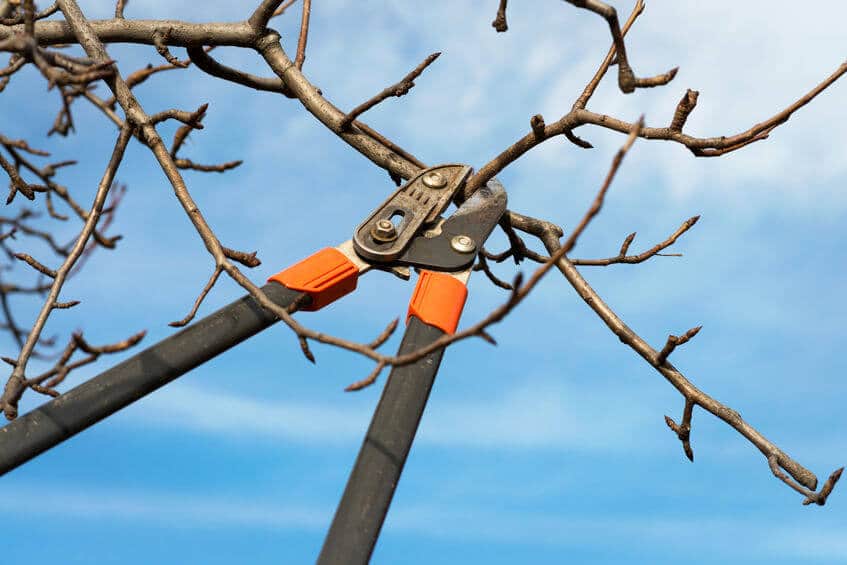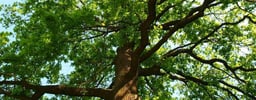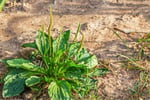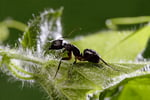Don’t let these small pests infect and damage your roses. If you’re wondering how to kill aphids, contact us today at (877) 944-4007 or click for a Free Estimate.

Bermuda Grass
Residential Lawn, Tree, & Pest Control
Some descriptive text here?
Pest Control Program
starting at $93/treatmentFull Service Year Round
*Prices vary by location and property sizes
Lawn Care Program
starting at $52/treatmentComprehensive Treatment
*Prices vary by location and property sizes
Pest Control Program
Starting at $93/treatmentYear Round Protection
Per Treatment for Spraying**
Prices vary by location and property sizes
DENVER LAWN CARE
Senske offers Revive®, a uniquely organic lawn fertilization treatment in Denver, CO. This specialty fertilizer and soil treatment is specially formulated for East Denver lawns.
DENVER PEST CONTROL
Our certified pest control technicians expertly identify pest problems unique to Denver and safely rid your home and property of them. We'll even keep them from returning.
DENVER TREE SERVICE
Our ISA certified arborists know the specific needs of trees and shrubs in Denver, CO. Let Senske protect your property investment and care for your trees.

DENVER LAWN CARE
Senske offers Revive®, a uniquely organic lawn fertilization treatment in Denver, CO. This specialty fertilizer and soil treatment is specially formulated for East Denver lawns.
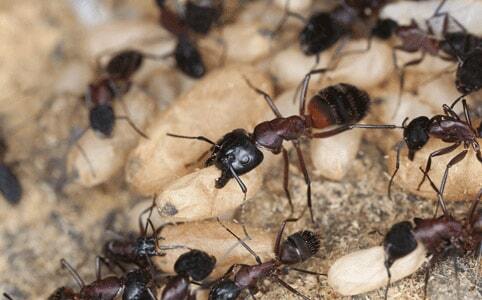
DENVER PEST CONTROL
Our certified pest control technicians expertly identify pest problems unique to Denver and safely rid your home and property of them. We'll even keep them from returning.
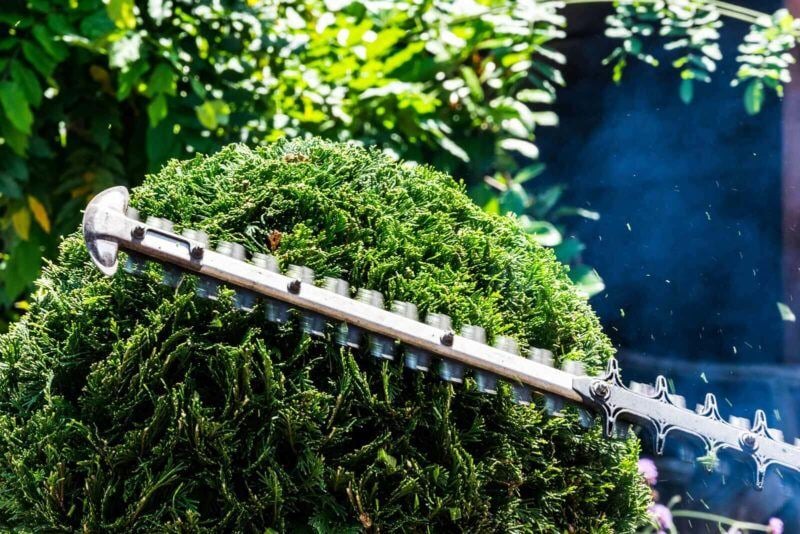
DENVER TREE SERVICE
Our ISA certified arborists know the specific needs of trees and shrubs in Denver, CO. Let Senske protect your property investment and care for your trees.
Aphids Control and Removal
Aphids are common tree pests that also attack shrubs and other garden plants. Senske ISA Certified arborists can remove any type of aphid or remove other types of tree pests as well. Count on us to employ professional tree service.
Have you ever parked your car in the shade under a large, overhanging tree only to find when you return that the tree has dripped a sticky residue onto your car? Well, before you run off to your nearest hardware store to purchase a saw and cut the tree down, you should understand what the real culprit is: Aphids.
- What Are Aphids? What Do Aphids Look Like?
- Signs of an Aphid Infestation
- Prevent Aphid Infestation
- Rose Aphids
What Are Aphids? What Do Aphids Look Like?
 Aphids are small, pear-shaped, soft-bodied insects that feed on plants through needle-shaped noses that pierce plant stems, leaves, and tender plant parts. Aphids feed on fluid within the plant, causing the leaves of some plants to curl, yellow and distort. In addition to damaging the appearance of plants, aphids can also transfer diseases from one plant to another.
Aphids are small, pear-shaped, soft-bodied insects that feed on plants through needle-shaped noses that pierce plant stems, leaves, and tender plant parts. Aphids feed on fluid within the plant, causing the leaves of some plants to curl, yellow and distort. In addition to damaging the appearance of plants, aphids can also transfer diseases from one plant to another.While a small number of aphids normally do not cause much damage to trees and plants, aphid control can be difficult because of their rate of reproduction. Each individual aphid can reproduce as many as 80 new insects in one week. Aphids also like to feed in groups, so if not controlled, they can take over a plant in short order and cause the sticky tree substance, referred to as “honeydew”, to build upon the underside of plants and trees until it drips onto your freshly washed car.
Another reason why aphid control is so important is that they can spread rapidly. Even though most aphids are wingless, once a tree has become overpopulated by feeding aphids and the food source has been depleted, a generation of winged aphids will be produced, allowing them to migrate to another food source. The only thing worse than having aphids create a sticky mess of one of your favorite trees or plants is having them make a sticky mess out of two – or even your entire garden.
As is the case with most infestations, early detection can be your best weapon. And an aphid infestation is no different. The most difficult aspect of aphid control is the fact that by the time you notice the damage, they have already taken control of a large part of the tree, and some might think it’s too late.
Signs of an Aphid Infestation
 Aphid control is really a matter of early detection and prevention. Aphids cause the most damage in warm weather, usually
Aphid control is really a matter of early detection and prevention. Aphids cause the most damage in warm weather, usually
with outside temperatures between 65° and 80°, and when plants and/or shrubs are coming out of dormancy and starting their growing season. One sure-fire way to know that you are dealing with an aphid problem is the notable sticky material building up on the leaves, often referred to as “honeydew”.
Ladybugs help with aphid control One crucial aspect of aphid control is knowing where to look. Aphids usually like to hang out on the underside of leaves, so it is important to make sure and turn leaves over to inspect them for signs of these intruders, including checking the newer growth on the plant. Another way of detecting aphids early is the appearance of their enemies, which include lady beetles and lacewings.
Prevent Aphid Infestation
While early detection is critical for aphid control, don’t forget that the best defense is a great offense. There are some simple things that you can do to keep an aphid infestation from happening in the first place. Spraying your shrubs and plants with water can help to knock any existing aphids off the leaves. This is effective because they have a very hard time getting back up to damage the plants as most aphids do not have wings. While not a permanent fix, regular spraying can disrupt the aphids enough to prevent them from causing major damage.
 For large shrubs and trees, including those beautiful shade trees you park your car under to say cool, the most effective aphid control method is to perform preventative insecticide treatments that move through the tree systemically through what is referred to as systemic injections or tree injections. The injections are made of up special control materials that the trees absorb from the soil under their drip line and are transported by the sap all over the tree. The aphids then feed on the sap and ingest enough of the control material to stop them cold! Tree injections are perfectly safe and environmentally friendly, as the materials are not exposed to birds, pets or children at any time.
For large shrubs and trees, including those beautiful shade trees you park your car under to say cool, the most effective aphid control method is to perform preventative insecticide treatments that move through the tree systemically through what is referred to as systemic injections or tree injections. The injections are made of up special control materials that the trees absorb from the soil under their drip line and are transported by the sap all over the tree. The aphids then feed on the sap and ingest enough of the control material to stop them cold! Tree injections are perfectly safe and environmentally friendly, as the materials are not exposed to birds, pets or children at any time.
Rose Aphids – Sucking the Life Out of Your Roses
Aphids are shrub and tree pests that can kill your plants if left alone. As part of our comprehensive tree service, Senske is dedicated to removing tree and shrub pests such as aphids.
Rose gardens can be a place of beauty, relaxation, and inspiration. There are not many things that can disrupt a garden’s beauty faster than aphids. Aphids are small, pear shaped insects that feed on the sap of growing plants. Individual aphids are not particularly dangerous to plants, but they reproduce at an alarming rate and can take over a garden in no time. Aphids also produce a sticky residue called “honeydew” that creates the perfect environment for black mold to develop.
 Aphids are especially a problem for rose lovers. Because aphids like to feed on the sap of a plant during early growth, rose aphids will attach themselves to emerging rose buds. They will then feed on the buds as it they are developing, which can lead to stunted growth, or deformities in the rose buds. Since the insects are feeding on the plant while it is still growing, the effects of the attack during this important time can last far beyond the initial aphid infestation. Rose aphid infestations can also cause leaves and petals to prematurely fall from full bloom roses.
Aphids are especially a problem for rose lovers. Because aphids like to feed on the sap of a plant during early growth, rose aphids will attach themselves to emerging rose buds. They will then feed on the buds as it they are developing, which can lead to stunted growth, or deformities in the rose buds. Since the insects are feeding on the plant while it is still growing, the effects of the attack during this important time can last far beyond the initial aphid infestation. Rose aphid infestations can also cause leaves and petals to prematurely fall from full bloom roses.
Finding aphids before they start to spread is key for rose aphid control. Look for aphids on flower buds, shoot tips, and young foliage. Normally, aphids can be found on the underside of leaves. If aphids are found, spraying the rose bush with water can knock the aphids off, but just spraying aphids is not a permanent fix. However, you would have to repeat this tedious effort often, so a more effective solution is to hire a professional who can treat and control the rose aphid problem to alleviate any current and future issues.
How to Get Rid of Aphids
Weeds, Lawn & Tree Diseases, and Pests to Look Out For
Weeds Common for Denver
Senske lawn care and tree service treatments in Denver East enables a greener lawns, healthy trees and shrubs without the hassles and time commitment needed to maintain it yourself. We’ll also help remove weeds, treat lawn and tree diseases and problem areas. Senske Services has been providing residential and commercial lawn care services to communities in the Northwest since 1947.
Our Denver East and surrounding communities lawn care services reflect our commitment to quality in all aspects of lawn maintenance. Learn more about Denver East weed and lawn diseases we solve:










Find Out About Other Weeds, Lawn & Tree Diseases, and Pests to Look Out For























How can we help you?
100% Guaranteed Results
Get a Free Estimate Today
Make your yard the greenest on the block and enjoy a home free from pests, all delivered by courteous, & professional techs.Great service!
Jason did a nice job on our Christmas lights. The crew arrived on schedule and accommodated my special requests. They even wired up a few of my yard decorations without my asking them. Thank you!
Very Professional!
“Max calls ahead, comes early in the day, and answers all my questions. He’s very professional!"Extremely Pleased!
“I have been extremely pleased with this service, my lawn has literally gone from drab to fab. Steve serviced the lawn today and as always, let's me know he is here (per my request) tells me follow up steps and then is on his way to do the service."Thankful for Senske!
“I am thankful my neighbor recommended Senske services, as a single mom, I do not have time, or energy to fix my lawn, so I hired the pros. Definitely worth it and very reasonable costs. Much appreciated."The Dirt
Find out more on our blog.


